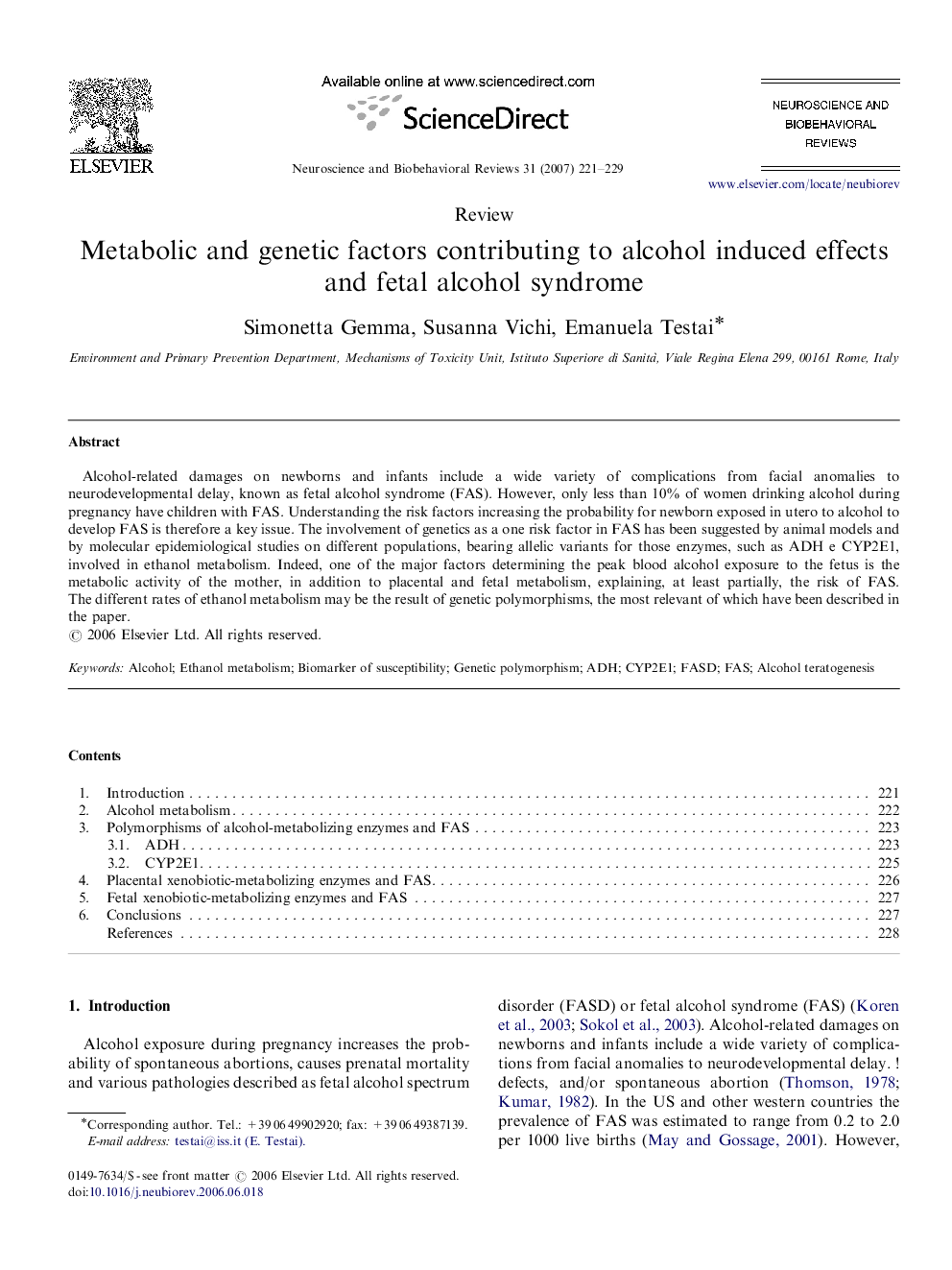| Article ID | Journal | Published Year | Pages | File Type |
|---|---|---|---|---|
| 938276 | Neuroscience & Biobehavioral Reviews | 2007 | 9 Pages |
Alcohol-related damages on newborns and infants include a wide variety of complications from facial anomalies to neurodevelopmental delay, known as fetal alcohol syndrome (FAS). However, only less than 10% of women drinking alcohol during pregnancy have children with FAS. Understanding the risk factors increasing the probability for newborn exposed in utero to alcohol to develop FAS is therefore a key issue. The involvement of genetics as a one risk factor in FAS has been suggested by animal models and by molecular epidemiological studies on different populations, bearing allelic variants for those enzymes, such as ADH e CYP2E1, involved in ethanol metabolism. Indeed, one of the major factors determining the peak blood alcohol exposure to the fetus is the metabolic activity of the mother, in addition to placental and fetal metabolism, explaining, at least partially, the risk of FAS. The different rates of ethanol metabolism may be the result of genetic polymorphisms, the most relevant of which have been described in the paper.
